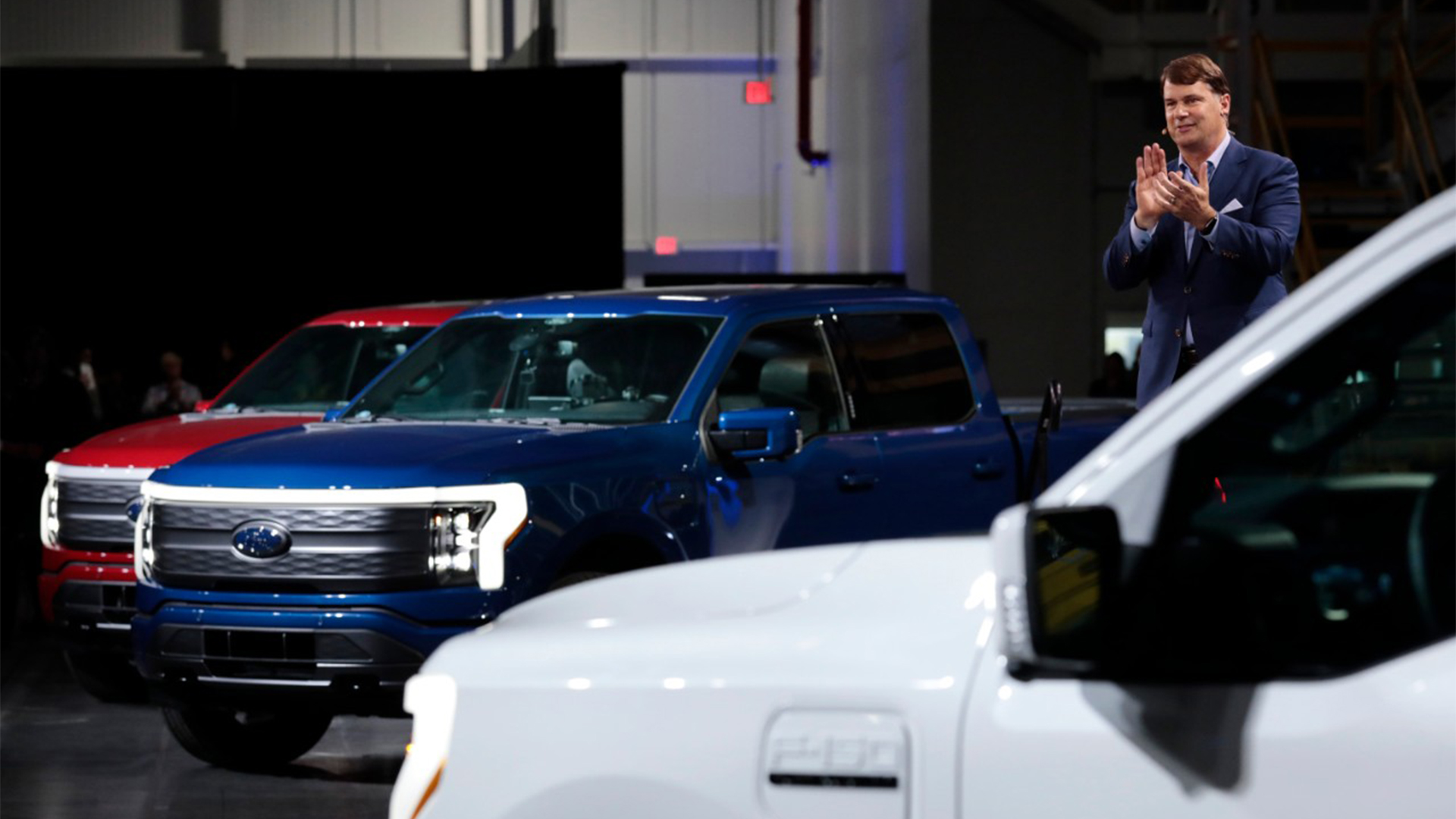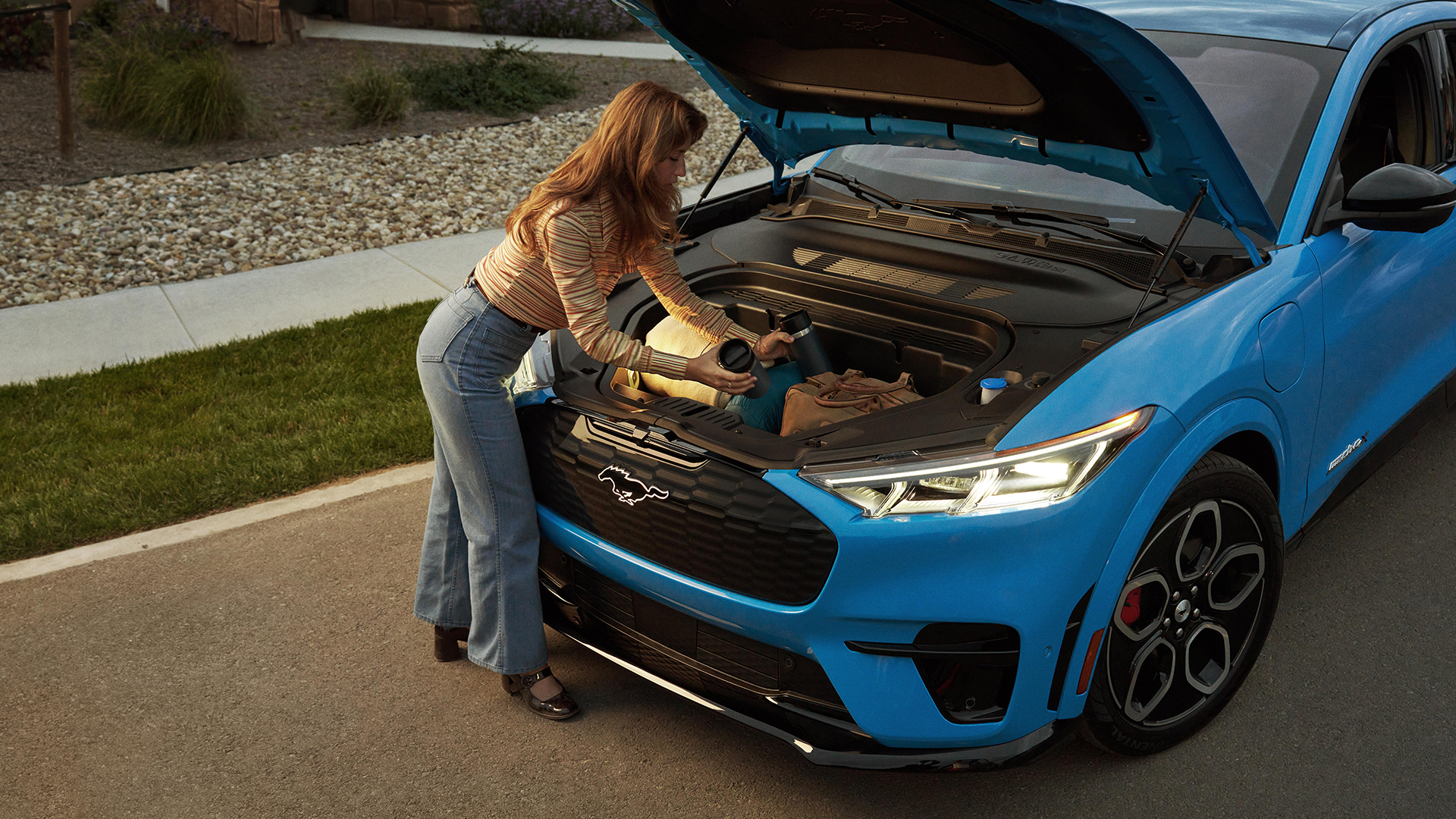Ford could soon take the fight to Tesla with an affordable electric SUV
Former Tesla engineer heads up development of Model 2 rival

A recent report from Bloomberg claims that Ford's 'skunkworks' electric vehicle engineering team is quietly working on a direct rival to the upcoming and long-awaited Tesla Model 2 – tipped to be Elon Musk’s most affordable, mass-market EV to date.
We covered the news that Tesla’s cheapest ever EV is coming when it surfaced late last year, when information procured by Reuters stated that this sub-€25,000 ($26,838 / AU$41,000) model will be produced at the company's Gigafactory in Berlin.
Now, it has been revealed that Ford has assembled some of its greatest engineering minds to fast-track a small and affordable model to directly compete with the Model 2 - those minds include Alan Clarke, an ex-Tesla employee who was previously in charge of overseeing the development of Model Y.
According to Bloomberg's report, a small team of fewer than 100 employees have been working on a more affordable EV platform, which is said to include the use of lithium iron phosphate batteries, which are allegedly around 30 per cent cheaper than traditional lithium-ion batteries.
Ford CEO, Jim Farley, created the skunkworks team in order to switch focus onto "smaller EV products" after admitting that customers weren’t willing to hand over the premium for larger, more expensive electric vehicles.
According to the Bloomberg report, the platform this skunkworks team is working on could underpin a compact SUV, which will be priced to rival the upcoming Tesla, as well as a pick-up truck and potentially a vehicle for ride-hailing purposes.
Accelerating EV uptake

Most of the major European carmakers have already realised the importance of small, affordable EVs to guarantee future profits, with the likes of Volkswagen, Citroen and Fiat all poised to launch a raft of vehicles priced below that magic €25,000 ($26,838 / AUS$41,000) threshold.
Sign up for breaking news, reviews, opinion, top tech deals, and more.
In fact, Renault's CEO, Luca de Meo, recently appealed to European politicians and fellow automakers to speed up the adoption of EVs with governmental initiatives and the development of smaller and affordable electric vehicles for customers – a move de Meo claims is important to fend off the impending threat from China.
In the US, the Biden administration just announced one of the strictest rules on tailpipe emissions, which calls for a 56 per cent reduction in fleet-wide average carbon output by 2032, according to The Guardian.
This will guarantee the dramatic uptake in electric vehicles over the coming years, with President Biden recently stating: "US workers will lead the world on autos making clean cars and trucks, each stamped ‘Made in America’. You have my word."
With Tesla tipped to start selling its mass-market Model 2 some time in 2026, the race appears to be on for America’s biggest automakers to offer electrified models that span a wide range of price points in order to convince customers to make the switch.
That said, Biden's clampdown on emissions isn’t immediate, with the administration stating that the timeline stretches to 2055 before the new rules are full implemented, giving the likes of Ford plenty of time to adjust its strategy.
You might also like

Leon has been navigating a world where automotive and tech collide for almost 20 years, reporting on everything from in-car entertainment to robotised manufacturing plants. Currently, EVs are the focus of his attentions, but give it a few years and it will be electric vertical take-off and landing craft. Outside of work hours, he can be found tinkering with distinctly analogue motorcycles, because electric motors are no replacement for an old Honda inline four.